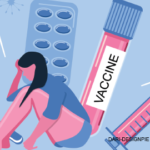NEW YORK (Reuters Health)—People with rheumatic diseases should continue their medicines, monitor their health and avoid stress when possible during the current coronavirus pandemic, according to a group of rheumatologists in South Korea.1
Because rheumatic diseases are linked with chronic inflammation and abnormal immune functions, patients may be at a greater risk for COVID-19 infection, the authors speculate in Rheumatology International. Patients may also face difficulty in scheduling their typical appointments for medical care.
“All of these [factors] can put the patients with rheumatic diseases at risk and strike them with fear at the same time,” says senior author Han Joo Baek of the Gachon University College of Medicine, Incheon.
“Self-care is one of the crucial principles for overcoming chronic disease such as rheumatic diseases,” he tells Reuters Health by email. “During COVID-19, the role of self-care is even more important.”
Dr. Baek and colleagues in the Korean College of Rheumatology evaluated a list of suggestions for patients with rheumatic diseases during COVID-19. They and the Korean Academy of Internal Medicine endorsed 14 tips for “A Wise COVID-19 Life” as the pandemic continues.
Many of the tips include the messages that public-health groups have recommended for everyone during the pandemic, including hand washing, wearing facemasks and avoiding others with symptoms.
As some countries begin to reopen and lift restrictions, however, people without chronic diseases are beginning to drop their precautions and not wear a facemask or distance themselves from others. People with rheumatic diseases need to continue to follow these recommendations to prevent infection and stay healthy, Dr. Baek says.
“Since they are vulnerable to COVID-19 infection, they need to follow these general guidelines more strictly to protect themselves,” he says.
Additionally, the group recommends indoor exercise and stretching to maintain healthy joints and muscles and prevent weakness that could develop from being sedentary indoors during a long period of isolation and physical distancing. The doctors also recommend sunbathing in a well-lit indoor space to receive vitamin D for the immune system.
People with rheumatic diseases should avoid visiting places where people gather, especially poorly ventilated spaces, they write. Patients should also continue taking their medicines and not adjust the dose without talking to their doctor first.
The group emphasized the importance of avoiding stress and depression as much as possible, particularly since the pandemic may increase stress and spark fears about the future.
“Everyone during COVID-19, which is a stressful situation, should monitor their mental health, eat well, exercise regularly and look for healthy options to reduce stress,” says Dr. Janet Pope of the University of Western Ontario, London, Canada. Dr. Pope, who wasn’t involved with this article, has written about the pandemic and what it means for rheumatology patients.



